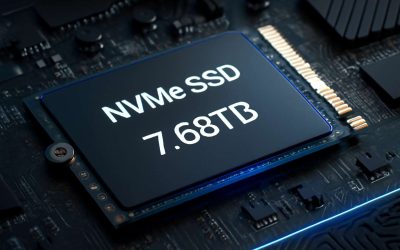
A Solid State Drive (SSD) is a storage device that uses a combination of flash memory and semiconductor cells to store data. They are typically faster than hard drives. SSDs also have no moving parts. The main components of an SSD are a flash controller, which executes firmware-level software, and NAND flash memory chips. These components are usually integrated into other circuitry in a device.
There are several advantages to using an SSD, such as improved performance, lower latency, and data security. Unlike HDDs, an SSD can operate in a variety of applications, including digital music players, smartphones, and even digital cameras. Unlike HDDs, SSDs have no physical limit on how much data they can store. This means they can scale up to larger capacities.
A solid state drive is a lot smaller than a traditional hard drive, which can make them more resistant to physical damage. However, they can still get damaged by vibration and shock. Also, since they are not magnetic, they are prone to electromagnetic pulses, which can damage electrical systems and integrated circuits.
Another advantage is that they are quieter. Since they do not have moving parts, they are less sensitive to vibration. In addition, they are designed to be more shock-resistant. Therefore, they are often used in laptops and other consumer electronics.
However, they are more expensive than HDDs. Because they are so small, they can be mounted directly to the motherboard. Additionally, they are energy efficient, which means they consume less power than traditional hard drives.
Some consumer-class SSDs include batteries. This makes them an ideal choice for laptops and small notebooks. Most enterprise-class SSDs, however, have built-in capacitors.
The lifespan of an SSD depends on several factors. The primary reason for wear is write amplification, which occurs when total internal writes exceed the amount of writes required to place new data. Wear leveling spreads write operations across all cells to prolong the lifespan of the SSD.
SSDs are also more durable than HDDs, as there is no moving part. In addition, they are able to survive more common drops and accidents. For this reason, they are ideal for applications that require speedy access to data.
As the technology advances, the price of an SSD is expected to continue decreasing. If you are unsure of whether an SSD is right for your needs, consider the size and type of storage space you need. Knowing the average monthly amount of data that you will be using can help you figure out the amount of storage you need.
An SSD is a great choice for people who need fast access to their data. It is also ideal for businesses that conduct real-time transactions. Using an SSD can increase the performance of your operating system and apps. When you purchase an SSD, be sure to add about 20% to the capacity.
While it may seem like there are more benefits to an SSD than a traditional HDD, the reality is that both types of storage devices offer their own set of advantages and disadvantages. You need to choose the best drive for your application and budget.



0 Comments